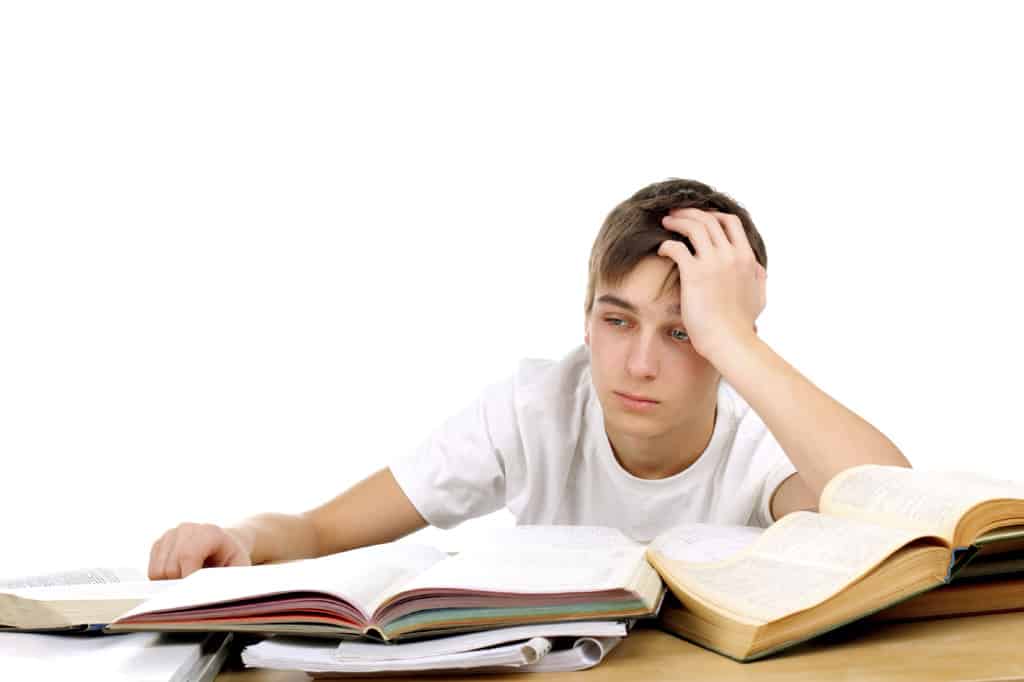
Our latest survey asked 1,000 teens (13-18 year olds) how the exam season affects their sleep and the findings are now in!
We found that teenagers are skimping on vital sleep as they cram in up to 14-plus hours of exam revision each week and that in the month leading up to exams, the number of teenagers who have just five to six hours sleep a night doubles from 10% to 20%.
It’s a worrying number. Teens need sleep to function and perform at their best in the build up to exams. Sacrificing sleep to study isn’t the answer. A good night’s sleep triggers changes in the brain that help to improve memory, meaning you’ll be much better able to remember what you’ve learnt the day before. Lack of sleep can end up clouding judgement or increasing the number of mistakes made.
Some other key findings were:
- 83% of teens admit their sleep is affected by stress and worry.
- 56% admit to regularly cramming all their revision for an exam into one night.
- 82% used their bed for revising/studying.
- 26% of teens drink energy/caffeine drinks to stay awake.
- 46% find themselves snacking more often when revising.
It was interesting to see that more than four out of five teens said their bed was their preferred location for doing revision work. More than a third (35%) said they do so because it’s a great place to spread out their papers and books.
However from our point of view, we’d prefer to see teens studying somewhere else. While a good bed is definitely comfortable, it needs to be associated with sleeping rather than revising. In a teen’s bedroom it’s important to zone areas so that there is an entertainment zone for play, a work space for studying and a sleeping area for quiet and rest.
Lack of sleep also impacts on other factors too – such as weight, skin and what you eat. And our research found that teens used chocolate (34%) and drinking energy/caffeine drinks (26%) to stay awake. Plus almost half said they found themselves snacking more when revising. When you’re tired you are also more likely to crave sugary snacks and stodgy carbohydrates to keep you going rather than healthy choices.
The best food for the brain is sleep, so you’ll need a lot of sleep during exam times. When you’re tired you will find it difficult to concentrate and learn.
So, how much sleep do you need? Well, when you’ve had the right amount of sleep you don’t feel tired, not too much and not too little. Most teenagers need between 8 and 9 hours sleep a night.
Try and get good quality sleep. So, don’t sleep with your books all over your bed or with lights, music or the computer on. For the best sleep, make sure your room is quiet, comfortable and dark.
If you stay up late studying and don’t get enough sleep, you may need a ‘power nap’ in the afternoon. A short sleep of 30 minutes may give you some energy before you start revising, but keep it short – you don’t want to spend all afternoon in bed!
Tips to help you sleep
Have a regular bed time. Try to go to bed at the same time every night, if possible 8 or 9 hours before you have to wake up.
Do plenty of exercise. Don’t do exercise just before bedtime, but regular exercise earlier in the day can help your body sleep at night.
Don’t drink caffeine (colas, tea or coffee) in the afternoons and evenings. Drink water, fruit juices or herbal teas.
Have a milky drink just before bedtime.
Relax before you go to bed. When you have finished studying, read a book, listen to music, watch TV or have a bath to help you relax.
Turn off lights, your computer, mobile and any other electrical devices in your room.
When you wake up, open the curtains to get lots of natural light in your room. This will help you feel more awake in the morning.
